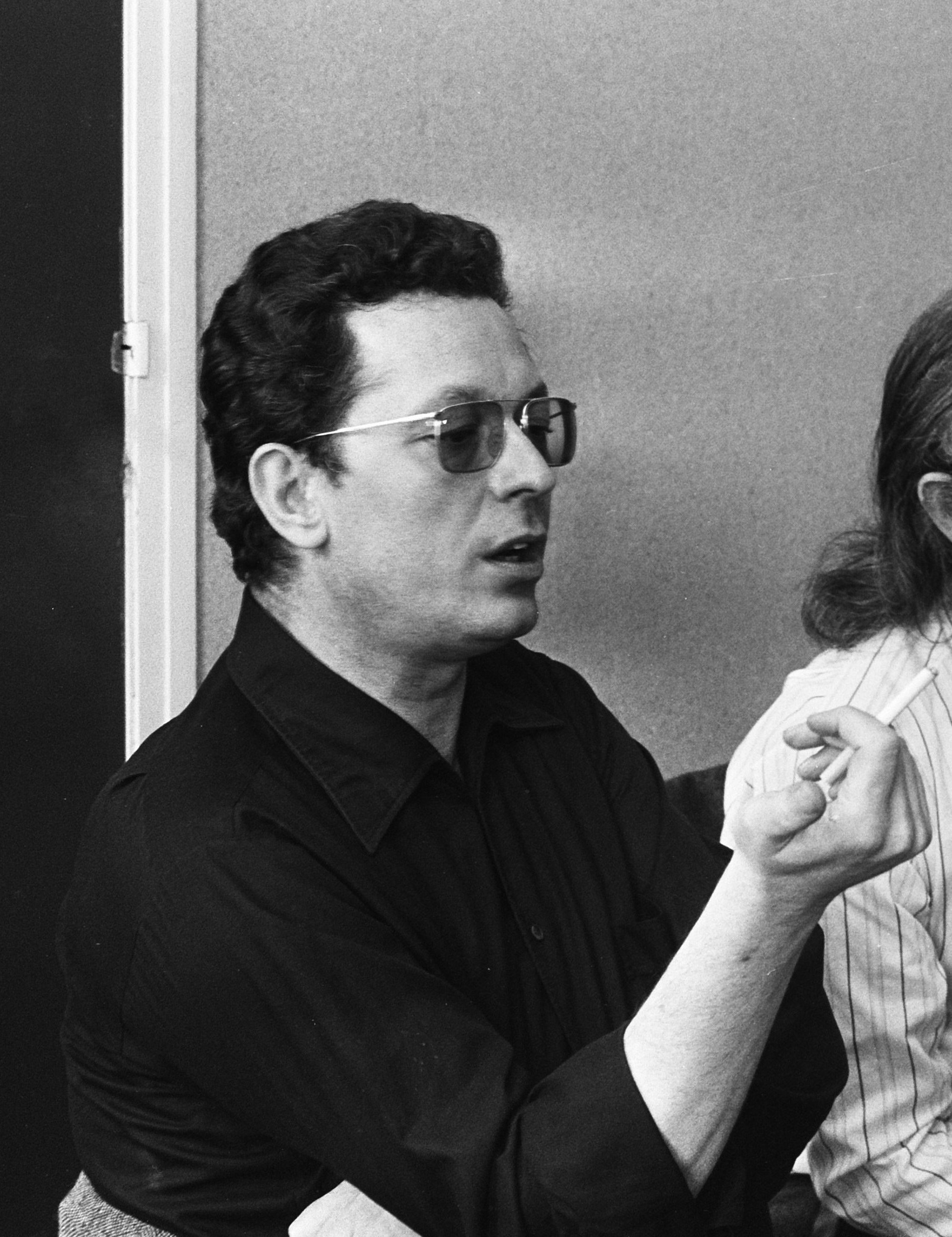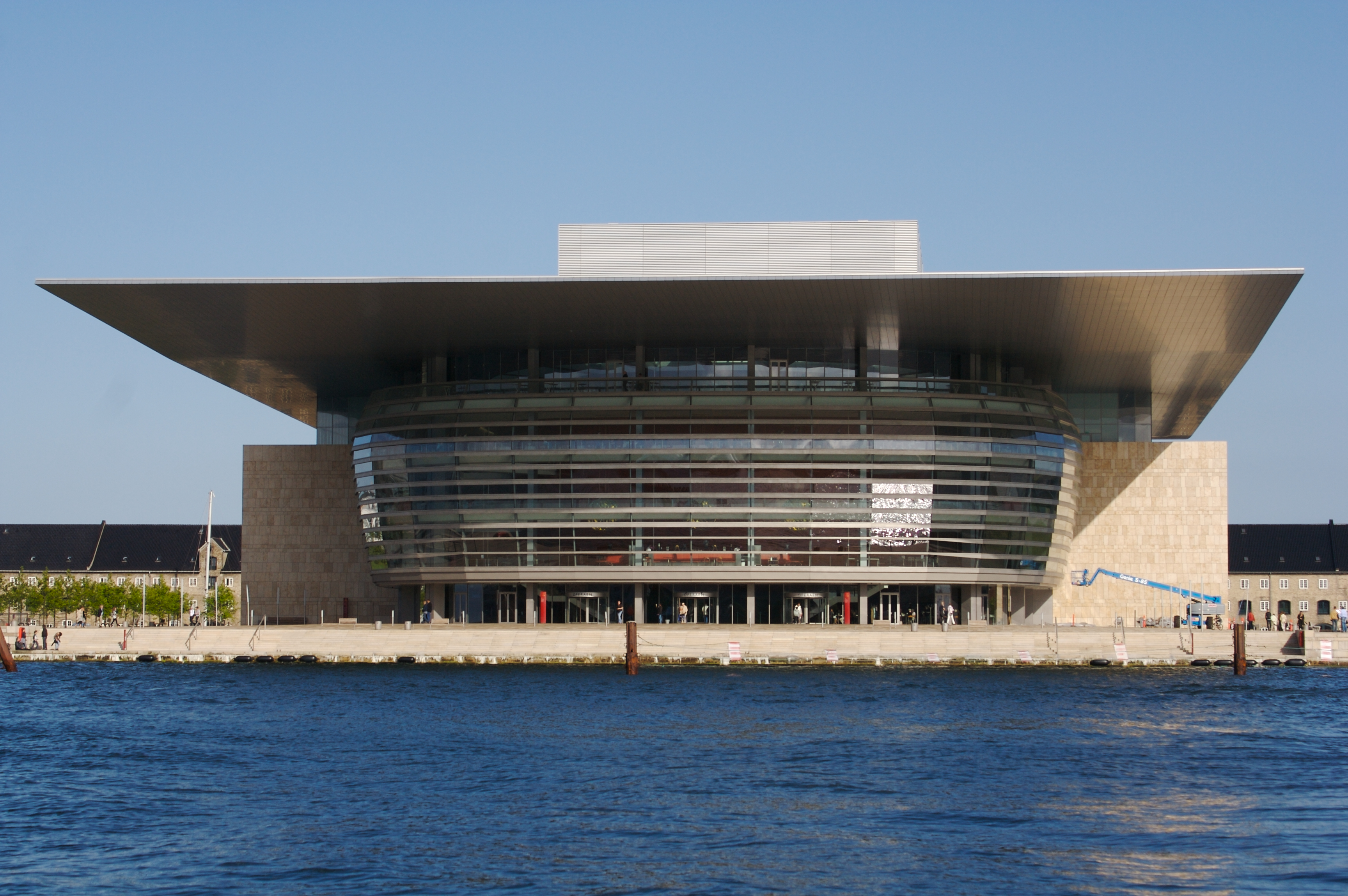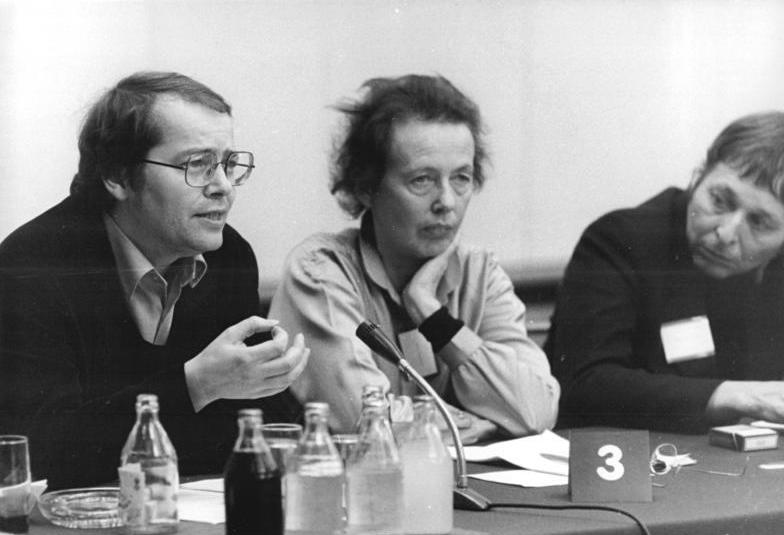|
Ute Trekel-Burckhardt
Ute Trekel-Burckhardt (born 3 November 1939) is a German operatic mezzo-soprano. She was a long-time lead soloist of the Berlin State Opera, Staatsoper Unter den Linden in East Berlin (later: Berlin State Opera). She took part in world premieres such as ''Noch einen Löffel Gift, Liebling?'' by Siegfried Matthus and Heinrich Sutermeister's ''Le Roi Bérenger''. Even before the fall of the Berlin Wall, she appeared internationally, including the Vienna State Opera in her signature role, the tile role of ''Der Rosenkavalier'', and at Opéra de Nancy in Schönberg's ''Erwartung''. Life and career Born in Pirna, Trekel-Burckhardt studied at the Hochschule für Musik "Hanns Eisler" with Rita Meinl-Weise. She made her stage debut in 1963 at the Komische Oper Berlin as Page in ''Salome (opera), Salome'' by Richard Strauss in a production by Götz Friedrich. In 1972, she participated in the world premiere of ''Noch einen Löffel Gift, Liebling?'' by Siegfried Matthus to a libretto by Pe ... [...More Info...] [...Related Items...] OR: [Wikipedia] [Google] [Baidu] |
Die Fledermaus
' (, ''The Flittermouse'' or ''The Bat'', sometimes called ''The Revenge of the Bat'') is an operetta composed by Johann Strauss II to a German libretto by Karl Haffner and Richard Genée, which premiered in 1874. Background The original literary source for ' was ' (''The Prison''), a farce by German playwright Julius Roderich Benedix that premiered in Berlin in 1851. On 10 September 1872, a three-act French vaudeville play by Henri Meilhac and Ludovic Halévy, ', loosely based on the Benedix farce, opened at the Théâtre du Palais-Royal. Meilhac and Halévy had provided several successful libretti for Offenbach and ''Le Réveillon'' later formed the basis for the 1926 silent film '' So This Is Paris'', directed by Ernst Lubitsch. Meilhac and Halévy's play was soon translated into German by Karl Haffner (1804–1876), at the instigation of Max Steiner, as a non-musical play for production in Vienna. The French custom of a New Year's Eve ''réveillon'', or supper party ... [...More Info...] [...Related Items...] OR: [Wikipedia] [Google] [Baidu] |
Götz Friedrich
Götz Friedrich (4 August 1930 in Naumburg, Germany – 12 December 2000 in Berlin, Germany) was a German opera and theatre director. He was a student and assistant of Walter Felsenstein at the Komische Oper Berlin in (East) Berlin, where he went on to direct his early productions. He first came to international prominence with a controversial 1972 production of Wagner's ''Tannhäuser'' at Bayreuth. He defected to the West whilst working on a production of ''Jenůfa'' in Stockholm later the same year. From 1972 to 1981 he was principal director at the Hamburg State Opera. Between 1977 and 1981, he was also director of productions at the Royal Opera House at Covent Garden in London, where he staged the first British performances of the three-act completion of Berg's ''Lulu''. In 1981 he took up the post of general director of the Deutsche Oper Berlin where he stayed until his death in 2000, staging productions across the whole of the operatic repertoire. He was particularly ... [...More Info...] [...Related Items...] OR: [Wikipedia] [Google] [Baidu] |
Oper Bonn
Theater Bonn (also known as the Stadttheater Bonn) is the municipal theatre company of Bonn, North Rhine-Westphalia, Germany. It is an organization that produces operas, musicals, ballets, plays, and concerts. It operates several performance venues throughout the town: for music theatre, the and for plays, and the Choreographisches Theater for ballet and dance. History The history of theatre in Bonn dates back to the time of the electors. End of the 17th century, a court theatre was established at the Electoral Palace, where French and Italian troupes played. In the 18th century, an amateur theatre was established for German plays (''Nationaltheater''), directed by Gustav Friedrich Wilhelm Großmann from 1778 to 1784, who staged the premiere of Schiller's '' Die Verschwörung des Fiesko zu Genua'' on 20 July 1783. The new French government destroyed the court theatre in 1797. In 1826, citizens built their own play house. A new building was opened in 1848, marked by Beeth ... [...More Info...] [...Related Items...] OR: [Wikipedia] [Google] [Baidu] |
Cologne Opera
The Cologne Opera (German: Oper der Stadt Köln or Oper Köln) refers both to the main opera house in Cologne, Germany and to its resident opera company. History of the company From the mid 18th century, opera was performed in the city's court theatres by travelling Italian opera companies. The first permanent company in the city was established in 1822, and performed primarily in the Theater an der Schmierstraße (built in 1783 as a private theatre and also used for plays and concerts). The opera company later performed in Theater in der Glockengasse (built in 1872) and in the Theater am Habsburger Ring (built in 1902). The Theater am Habsburger Ring was constructed by the city of Cologne and became its first theatre to be specifically designed as an opera house. The opera house The current opera house was designed by the German architect, Wilhelm Riphahn. It was inaugurated on 8 May 1957 in the presence of Konrad Adenauer, then the Chancellor of Germany and a former mayor of C ... [...More Info...] [...Related Items...] OR: [Wikipedia] [Google] [Baidu] |
Copenhagen Opera House
The Copenhagen Opera House (in Danish usually called Operaen, literally ''The opera'') is the national opera house of Denmark, and among the most modern opera houses in the world. It is also one of the most expensive opera houses ever built at a cost of 2.5 billion DKK ( USD). It is located on the island of Holmen in central Copenhagen. History The foundation ''A.P. Møller og Hustru Chastine Mc-Kinney Møllers Fond til almene Formaal'' donated the Opera House to the Danish state in August 2000. (Arnold Peter Møller (1876–1965) was a co-founder of the company now known as Mærsk). Some politicians were offended by the private donation, in part because the full cost of the project would be tax deductible, thus virtually forcing the government to buy the building; but the Folketing and the government accepted it in the autumn of 2000. Architect Henning Larsen (1925–2013) and engineers Ramboll and Buro Happold and theatre consultant Theatreplan designed the facility. ... [...More Info...] [...Related Items...] OR: [Wikipedia] [Google] [Baidu] |
Bavarian State Opera
The Bayerische Staatsoper is a German opera company based in Munich. Its main venue is the Nationaltheater München, and its orchestra the Bayerische Staatsorchester. History The parent ensemble of the company was founded in 1653, under Electress consort Princess Henriette Adelaide of Savoy, when Giovanni Battista Maccioni's ''L'arpa festante'' was performed in the court theatre. In 1753, the Residence Theatre (Cuvilliés Theatre) was opened as a major stage. While opera performances were also held in the Prinzregententheater (completed in 1901), the company's home base is the Nationaltheater München on Max-Joseph-Platz. In 1875, the Munich Opera Festival took place for the first time. Sir Peter Jonas became the general manager in 1993, the first British general manager of any major German-speaking opera house. In 2008, Nikolaus Bachler became Intendant (general manager) of the opera company, and Kirill Petrenko became Generalmusikdirektor (GMD) in 2013. In 2014, the ... [...More Info...] [...Related Items...] OR: [Wikipedia] [Google] [Baidu] |
La Clemenza Di Tito
' (''The Clemency of Titus''), K. 621, is an '' opera seria'' in two acts composed by Wolfgang Amadeus Mozart to an Italian libretto by Caterino Mazzolà, after Pietro Metastasio. It was started after most of ' (''The Magic Flute''), the last of Mozart's principal operas, had already been written. The work premiered on 6 September 1791 at the Estates Theatre in Prague. Background In 1791, the last year of his life, Mozart was already well advanced in writing ' by July when he was asked to compose an '' opera seria''. The commission came from the impresario Domenico Guardasoni, who lived in Prague and who had been charged by the Estates of Bohemia with providing a new work to celebrate the coronation of Leopold II, Holy Roman Emperor, as King of Bohemia. The coronation had been planned by the Estates in order to ratify a political agreement between Leopold and the nobility of Bohemia (it had rescinded efforts of Leopold's brother Joseph II to initiate a program to free the ser ... [...More Info...] [...Related Items...] OR: [Wikipedia] [Google] [Baidu] |
Ruth Berghaus
Ruth Berghaus (2 July 1927 – 25 January 1996) was a German choreographer, opera and theatre director, and artistic director. Life and career Berghaus was born in Dresden and studied Expressionist dance and Dance direction with Gret Palucca there and was an advanced student at the German Academy of Arts in Berlin, at least part of the time under Walter Felsenstein – associated with the Komische Oper East Berlin he founded – along with his two other first leading protégés, Götz Friedrich and Joachim Herz (1924–2010). All three would mark a departure from Felsenstein's insistence on textual accuracy in favor of Brechtian interpretation, but were in part inspired by also his insistence on maintaining an even balance between the musical and dramatic aspects of an opera being staged. From 1951 to 1964, Berghaus worked as choreographer on many stages, including the Deutsches Theater Berlin, the Deutsche Staatsoper Berlin and the Berliner Ensemble. Her work as a director be ... [...More Info...] [...Related Items...] OR: [Wikipedia] [Google] [Baidu] |
Harry Kupfer
Harry Alfred Robert Kupfer (12 August 1935 – 30 December 2019) was a German opera director and academic. A long-time director at the Komische Oper Berlin, he worked at major opera houses and at festivals internationally. Trained by Walter Felsenstein, he worked in the tradition of realistic directing. At the Bayreuth Festival, he staged Wagner's ''Der fliegende Holländer'' in 1978 and ''Der Ring des Nibelungen'' in 1988. At the Salzburg Festival, he directed the premiere of Penderecki's '' Die schwarze Maske'' in 1986 and ''Der Rosenkavalier'' by Richard Strauss in 2014. Career Born in Berlin, Kupfer studied theatre at the Theaterhochschule Leipzig from 1953 to 1957. He was the assistant director at the Landestheater Halle, where he directed his first opera, Dvořák's '' Rusalka'', in 1958. From 1958 to 1962, he worked at the Theater Stralsund, then at the Theater in Karl-Marx-Stadt, from 1966 as opera director at the Nationaltheater Weimar, also lecturing at the Hochschul ... [...More Info...] [...Related Items...] OR: [Wikipedia] [Google] [Baidu] |
Die Frau Ohne Schatten
' (''The Woman without a Shadow''), Op. 65, is an opera in three acts by Richard Strauss with a libretto by his long-time collaborator, the poet Hugo von Hofmannsthal. It was written between 1911 and either 1915 or 1917. When it premiered at the Vienna State Opera on 10 October 1919, critics and audiences were unenthusiastic. Many cited problems with Hofmannsthal's complicated and heavily symbolic libretto. However, it is now a standard part of the operatic repertoire. Composition history Work on the opera began in 1911. Hofmannsthal's earliest sketches for the libretto are based on a piece by Goethe, ' (1795). Hofmannsthal handles Goethe's material freely, adding the idea of two couples, the emperor and empress who come from another realm, and the dyer and his wife who belong to the ordinary world. Hofmannsthal also drew on portions of ''The Arabian Nights'', ''Grimms' Fairy Tales'', and even quotes Goethe's ''Faust''. The opera is conceived as a fairy tale on the theme of lo ... [...More Info...] [...Related Items...] OR: [Wikipedia] [Google] [Baidu] |
Don Carlo
''Don Carlos'' is a five-act grand opera composed by Giuseppe Verdi to a French-language libretto by Joseph Méry and Camille du Locle, based on the dramatic play '' Don Carlos, Infant von Spanien'' (''Don Carlos, Infante of Spain'') by Friedrich Schiller. In addition, several incidents, of which the Forest of Fontainebleau scene and ''auto-da-fé'' were the most substantial, were borrowed from Eugène Cormon's 1846 play ''Philippe II, Roi d'Espagne''. The opera is most often performed in Italian translation, usually under the title ''Don Carlo''. The opera's story is based on conflicts in the life of Carlos, Prince of Asturias (1545–1568). Though he was betrothed to Elisabeth of Valois, part of the peace treaty ending the Italian War of 1551–59 between the Houses of Habsburg and Valois demanded that she be married instead to his father Philip II of Spain. It was commissioned and produced by the Théâtre Impérial de l'Opéra (Paris Opera) and given its premiere at the Sa ... [...More Info...] [...Related Items...] OR: [Wikipedia] [Google] [Baidu] |
Aida
''Aida'' (or ''Aïda'', ) is an opera in four acts by Giuseppe Verdi to an Italian libretto by Antonio Ghislanzoni. Set in the Old Kingdom of Egypt, it was commissioned by Cairo's Khedivial Opera House and had its première there on 24 December 1871, in a performance conducted by Giovanni Bottesini. Today the work holds a central place in the operatic canon, receiving performances every year around the world; at New York's Metropolitan Opera alone, ''Aida'' has been sung more than 1,100 times since 1886. Ghislanzoni's scheme follows a scenario often attributed to the French Egyptologist Auguste Mariette, but Verdi biographer Mary Jane Phillips-Matz argues that the source is actually Temistocle Solera. Elements of the opera's genesis and sources Isma'il Pasha, Khedive of Egypt, commissioned Verdi to write an opera to celebrate the opening of the Suez Canal, but Verdi declined. However, Auguste Mariette, a French Egyptologist, proposed to Khedive Pasha a plot for a celebratory ... [...More Info...] [...Related Items...] OR: [Wikipedia] [Google] [Baidu] |









